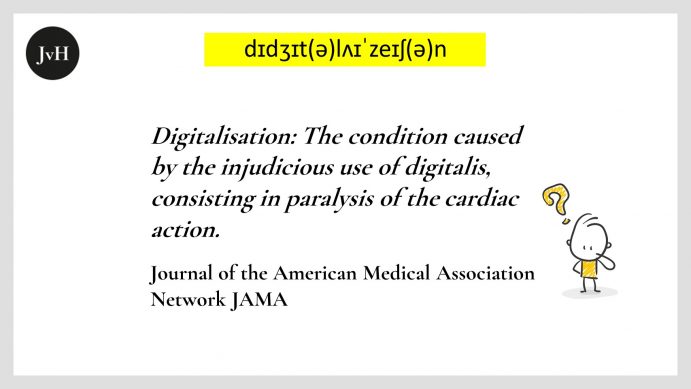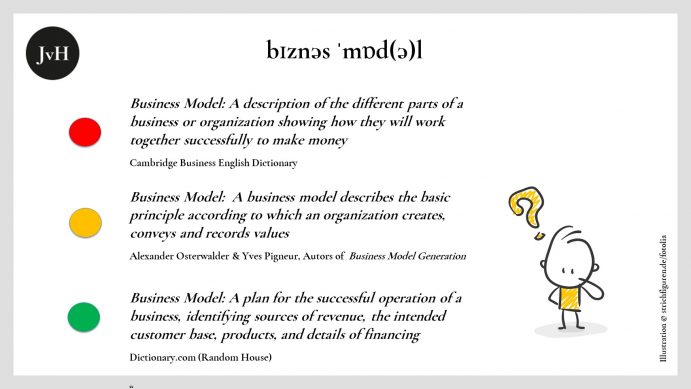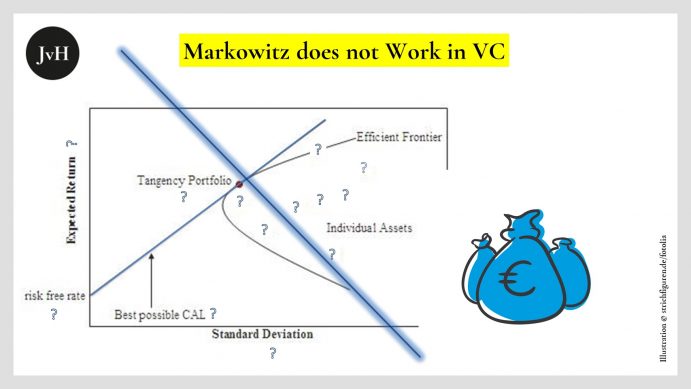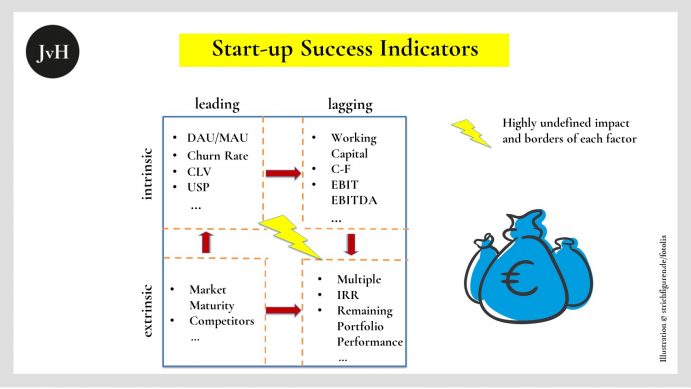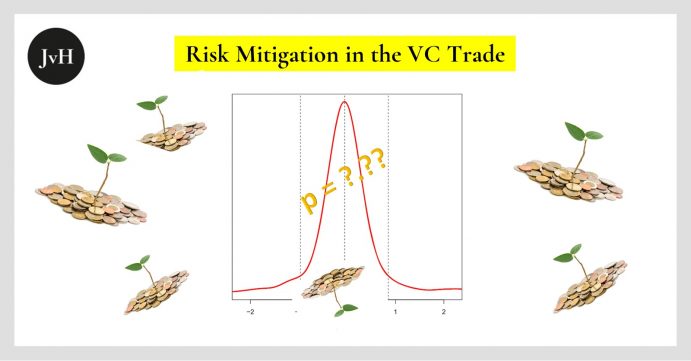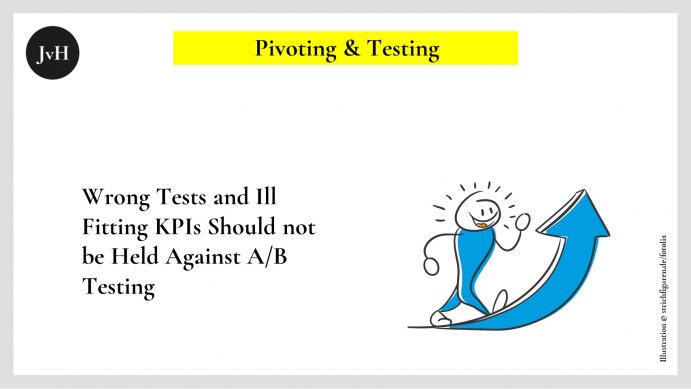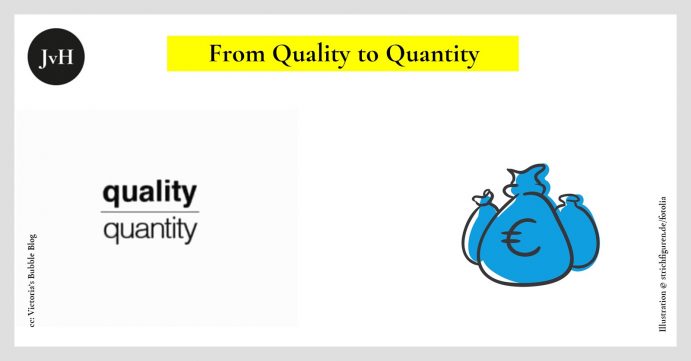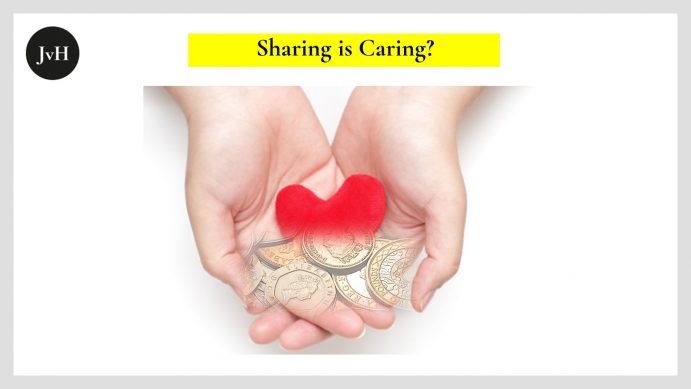Considering my modest financial means, I am actually quite heavily invested in 3D and VR. However, I must admit that now and then I ask myself: Where does all this craze about 3D and VR come from? Our “real” world is already 3D, is it not? And frankly: I do prefer a real reality to a virtual one. True, it’s … Read More
Digitalisation
Ever heard a native speaker spell out “di-gi-ta-li-sa-tion”? I guess almost everybody has and almost everybody could have noticed then, that the syllable following the “l” gets somehow swallowed up the same way as the preceding “a” gets mumbled away. The word does have a tongue twister capacity. This is presumably the main reason why people – unless they refer … Read More
Business Model
What is your business model? Ask any founder. The likelihood that you will have to listen to a fairly long-winded recap of the start-up’s 100-page business plan or at least its pitch deck is larger than 80 per cent. Why is that so? First of all: There is no uncontested definition of what exactly amounts to a business model. Second: … Read More
Risk Mitigation in the Venture Trade (Part 3): Markowitz does not Work
I guess (in the course of my two most recent blogs) I have made my basic stance clear that standard portfolio theory fails as far as start-up portfolios are concerned. Let us, just for the sake of the argument 😉, assume Markowitz’s paradigm could somehow be applied, or rather, transferred onto the start-up stage. What would it look like? I … Read More
Risk Mitigation in the Venture Trade (Part 2)
Last week I expanded on the conventional venture capital wisdom related to the avoidance of too many bad lots (investment targets) in the bucket. The standard recipe to avoid these odds (apart from engaging in thorough due diligences) is to invest in a sufficient number of start-ups. Conventional VC wisdom has it that one needs to invest in at least … Read More
Risk Mitigation in the Venture Trade (Part 1)
Like in conventional asset management theory, the credo for the need of a “distribution of risk” or “risk diversification” is generally also considered to be inviolable in the venture business. In my opinion, the imperative is fairly nonsensical – at least when it is based on the number or the type of targets to be chosen. Within the asset class … Read More
Wrong Tests and Ill Fitting KPIs Should not be Held Against A/B Testing
This time @AndrewChen ’s Newsletter was somewhat weird. Under the heading “Conservation of Intent: The hidden reason why A/B tests aren’t as effective as they look, Andrew argues that measures which result from A/B testing and aim at improving conversion rates do not take into account that normal users among those who churn are statistically dominated by “low intent” minnows, … Read More
Merkel on German IIoT – Why Germany is on a Dangerous Path
I think Germany is lucky to have a physicist with some respectable track record as head of government. She is intrinsically motivated to push the country’s sadly lagging digital transformation and she does not like empty blab. Despite that she needs to tread very carefully. One “wrong” word might result in disastrous political or industrial effects. In last Friday’s first … Read More
On Quality and Quantity in Start-up Processes
The issue how to quantify quality is an old one. In antediluvian times it used to be a common place that you cannot e.g. map quality on straight lines, because quality is a multi-dimensional category whereas quantity is one-dimensional. In business such philosophical qualms are generally perceived as academic and irrelevant: In HR and marketing for instance, where the “quality” … Read More
“Sharing is Caring”? Why Rifkin is Wrong
In his much-acclaimed book The Zero Marginal Cost Society, The Internet of Things, the Collaborative Commons and the Eclipse of Capitalism, palgrave mcmillan 2014, Jeremy Rifkin declares the internet economy and its key ambassadors the millennials to have dethroned capitalism for the sake of the new “World Wide Web” – inspired economic model. According to Rifkin, “openness”, “universal access for … Read More


